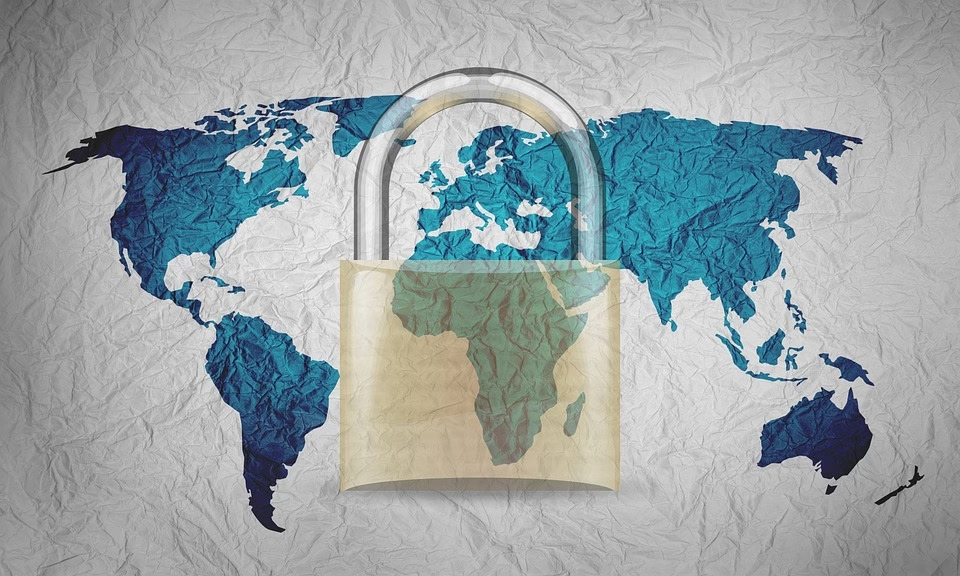The Cybersecurity Arsenal: Must-Have Solutions for Enterprises in 2025

Introduction – Why Security and Privacy Matter Today
In today’s digital landscape, security and privacy have become paramount concerns for both individuals and businesses. As cyber threats evolve, the need for robust cybersecurity measures is more pressing than ever. The exponential rise in remote work, the increasing use of cloud storage, and the proliferation of Internet of Things (IoT) devices have all paved new avenues for cybercriminals. By 2025, cyberattacks are expected to occur every 11 seconds, making it imperative to prioritize security and privacy to safeguard sensitive information. This article explores the risks involved, the best cybersecurity tools available, industry trends, and actionable best practices.
Overview – The Risks Businesses and Individuals Face
Cyberattacks
Cyberattacks range from sophisticated ransomware attacks to simple phishing schemes, posing a variety of risks. In 2024 alone, businesses faced an average cost of $4.5 million per breach, emphasizing the financial ramifications of inadequate cybersecurity measures.
Data Leaks
Data breaches, whether caused by external threats or insider negligence, can lead to the exposure of sensitive customer data. Organizations must be vigilant to prevent data leaks that could severely damage their reputation and customer trust.
Identity Theft
Identity theft is a growing concern, especially as individuals increasingly share personal data online. Victims of identity theft often face long-lasting repercussions, affecting their financial health and credit scores.
Best Tools – Recommended Cybersecurity Solutions
To protect against these risks, leveraging top-notch cybersecurity software is essential. Here are the best tools to consider in 2025:
1. Norton 360
- Features: Real-time threat protection, a VPN, dark web monitoring, and password manager.
- Pricing: $39.99/year for single devices, $89.99/year for family plans.
- Pros: Comprehensive suite; user-friendly interface; excellent malware detection rates.
- Cons: Slightly heavier on system resources; annual renewal costs can escalate.
2. ExpressVPN
- Features: High-speed servers, AES 256-bit encryption, split tunneling, and no-logs policy.
- Pricing: $99.95/year, $12.95/month.
- Pros: Fast and reliable; works in restrictive countries; exemplary privacy features.
- Cons: Pricier than some competitors; limited simultaneous connections (5 devices).
3. LastPass
- Features: Password storage with strong encryption, security alerts, and multi-factor authentication.
- Pricing: Free basic plan, premium for $36/year.
- Pros: Easy-to-use; excellent mobile sync capabilities; great password generation tools.
- Cons: Security incidents in the past; free version has limited features.
4. Bitdefender Antivirus Plus
- Features: Multi-layer ransomware protection, advanced threat defense, and secure VPN.
- Pricing: $34.99/year.
- Pros: Minimal impact on system performance; excellent customer support; free VPN.
- Cons: Some features hidden behind higher-priced tiers; user interface can be overwhelming.
5. Tresorit
- Features: End-to-end encryption, file sharing, and secure collaboration tools.
- Pricing: Starts at $12.50/user/month.
- Pros: Highly secure, with zero-knowledge architecture; great for teams.
- Cons: Pricier compared to mainstream storage options; less intuitive for new users.
6. Malwarebytes
- Features: Malware detection, ransomware protection, and web protection.
- Pricing: Free basic version; premium for $39.99/year.
- Pros: Excellent malware detection; lightweight; good for quick scans.
- Cons: Does not offer real-time protection in the free version; premium features costly.
7. Kaspersky Total Security
- Features: Antivirus, anti-ransomware, VPN, and webcam protection.
- Pricing: $59.99/year for up to 10 devices.
- Pros: High malware detection rates; easy to use; backup and encrypt feature.
- Cons: Past controversies regarding transparency; limited customization.
8. ProtonMail
- Features: End-to-end encryption, anonymous email service, and no personal data required.
- Pricing: Free basic version, starting from $5/month for premium features.
- Pros: Top-notch privacy; user-friendly; strong security protocols.
- Cons: Limited storage on free version; some advanced features require payment.
9. CyberGhost
- Features: Robust VPN service, ad blocker, privacy policy audits.
- Pricing: $47.75/year.
- Pros: Easy to use; many server locations; reliable speeds.
- Cons: User metrics and logging issues reported; limited features compared to competitors.
10. Dashlane
- Features: Password management, dark web monitoring, and secure storage.
- Pricing: Free for limited use; premium for $59.99/year.
- Pros: User-friendly interface; strong security features; includes a VPN.
- Cons: Limited syncing on the free version; can be pricey compared to alternatives.
Best Practices – Step-by-Step Methods to Improve Security and Privacy Using Software
Improving security and privacy requires a comprehensive approach. Follow these steps:
1. Implement Multi-Factor Authentication (MFA)
Always activate MFA on your accounts, especially email and financial services. This adds a critical layer of protection, ensuring unauthorized users cannot easily access your accounts.
2. Regular Software Updates
Ensure all software, operating systems, and applications are up-to-date to protect against vulnerabilities. Enable automatic updates where possible.
3. Use Strong, Unique Passwords
Employ password managers to generate and store complex passwords. Avoid reusing passwords across multiple accounts.
4. Educate Employees and Family
Conduct cybersecurity training sessions focused on recognizing phishing attacks and ensuring safe browsing habits.
5. Regular Data Backups
Utilize secure cloud storage solutions for regular backups of critical data. Implement full, incremental, and differential backups for comprehensive coverage.
6. Secure Wi-Fi Network
Secure home and business networks with WPA3 encryption, and consider using a separate guest network for visitors.
7. Monitor Accounts Regularly
Keep a close eye on bank and credit accounts for unusual activity. Report any anomalies immediately.
8. Use Encryption Tools
Encrypt sensitive documents before sharing them via email or cloud storage. Tools like Tresorit or Crypter can help with this.
Industry Trends – Insights into Current and Upcoming Cybersecurity Trends in 2025
In 2025, several trends are shaping the cybersecurity landscape:
1. Increased Use of AI and Machine Learning
AI technologies are being leveraged to predict and identify threats in real time, allowing for faster response times to potential breaches.
2. Zero Trust Security Models
Organizations are shifting towards a Zero Trust approach, which assumes that threats could be internal or external; thus, they require stringent access controls for all users, regardless of their origin.
3. Cloud-First Security Solutions
As businesses continue to adopt cloud technologies, security solutions are becoming increasingly cloud-based, offering scalability and efficiency.
4. Focus on Cyber Insurance
With the increase in ransomware attacks, businesses are increasingly turning to cyber insurance to mitigate financial risk.
5. Privacy Regulations
Governments Globally are enacting stricter regulations concerning data privacy, prompting businesses to prioritize compliance.
Case Studies / Examples – Real-World Security Breaches and Lessons Learned
SolarWinds Hack (2020)
The SolarWinds breach was a watershed moment, highlighting how a sophisticated supply chain attack could compromise multiple organizations including U.S. federal agencies. The extensive use of unsecured software and lack of vigilance led to a systemic breach. Key lessons include the necessity of thorough supply chain monitoring and finding vulnerabilities before they can be exploited.
Colonial Pipeline Ransomware Attack (2021)
This attack disrupted fuel supplies across the East Coast, forcing the company to pay a ransom of approximately $4.4 million. The incident underscored the importance of robust incident response plans and the consequences of delayed software updates.
Comparisons – How Leading Tools Differ in Protection, Pricing, and Usability
| Tool | Protection Level | Pricing | Usability |
|---|---|---|---|
| Norton 360 | High | $39.99/year | User-friendly |
| ExpressVPN | High | $99.95/year | Highly intuitive |
| LastPass | Medium | Free – $36/year | Easy to navigate |
| Bitdefender | High | $34.99/year | Slightly complex |
| Tresorit | Very High | Starts at $12.50/user/month | Moderate |
Pros & Cons – Balanced Analysis for Readers to Make Informed Decisions
Pros:
- Increasing awareness of cybersecurity measures.
- Variety of tools tailored to different needs.
- Innovations in AI and ML leading to more effective solutions.
Cons:
- Cost of comprehensive solutions can be prohibitive for small businesses.
- Complexity of tools may lead to user errors.
- Cybercriminals constantly evolving tactics outpace security measures.
FAQs
1. What is the best antivirus software for 2025?
The best antivirus software for 2025 includes Norton 360 and Bitdefender for their robust protection and additional features.
2. Which VPN is safest?
ExpressVPN and CyberGhost are among the safest VPNs for their advanced encryption and commitment to user privacy.
3. How to secure business data?
Utilize multi-factor authentication, conduct regular training, and implement strong access controls to secure business data.
4. Is cloud storage secure in 2025?
Yes, with proper encryption and security protocols, cloud storage can be very secure. Look for services like Tresorit and ProtonMail for enhanced security features.
5. What tools can help improve my online privacy?
Tools like VPNs, password managers, and secure email services like ProtonMail can significantly enhance your online privacy.
Conclusion – Final Thoughts with Practical Advice and Clear Recommendations
As we navigate the complexities of cybersecurity in 2025, it’s clear that the stakes are high. Both individuals and organizations must prioritize investments in cybersecurity tools and practices. The recommended solutions—ranging from antivirus software to encrypted email services—offer essential protection against the ever-evolving landscape of cyber threats. Education, vigilance, and the adoption of best practices will be crucial in fostering a safer digital environment.
Remember, the most effective cybersecurity strategy combines quality tools with ongoing education and robust policies. Take the necessary steps now to secure your digital future.
🚀 Try Ancoia for FREE today and experience the power of business automation!
🔗 Sign up now and get a 7-day free trial



